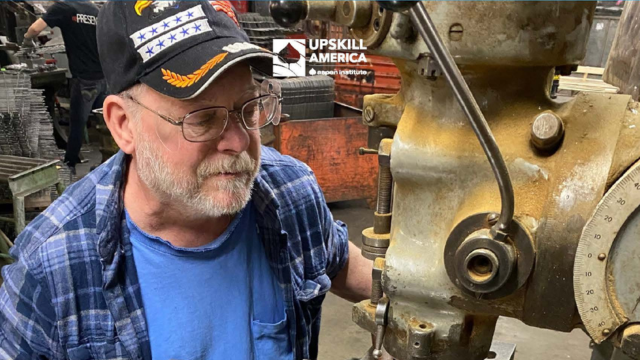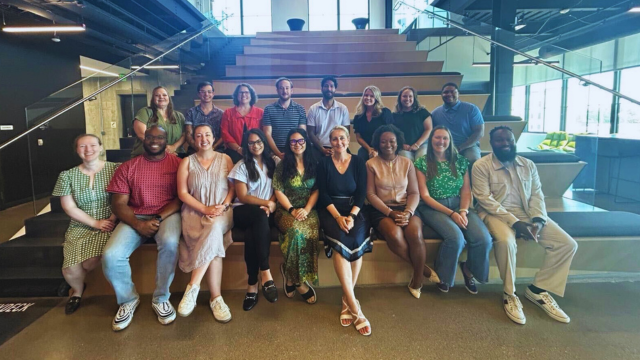Employer-Friendly Practices: Bridging Higher Ed Practices and Employer Realities

Haley Glover
Senior Director
Overview
Employers are increasingly investing in postsecondary education, supporting their employees as they earn degrees and credentials as a strategy for retention, advancement, and internal mobility, as well as supporting employees’ longer-term career goals. Despite years of effort to build effective partnerships, though, colleges and employers often operate with fundamentally different rhythms, languages, and expectations.
The result is a persistent disconnect, which is more than a rhetorical or philosophical divide between different sectors. There are operational differences that prevent effective partnerships between employers and postsecondary institutions, and which limit the success of employer-supported education programs. Employers expect institutions to be responsive, transparent, and aligned across their academic, financial, and student service systems. When those systems fall short, it is learners, who are often juggling work, family, and education, who often pay the price. One employer put it plainly: “There is already skepticism among our employees. When we say we’ll pay for college and it doesn’t go smoothly, they stop believing us.”
In 2025, with support from the Strada Education Foundation, UpSkill America launched a research initiative to better understand what enables and prevents colleges and universities from working effectively with employers. We wanted to move past surface-level observations and explore the structural, operational, and institutional policy-level situations that shape these relationships. We wanted to dig into the institutional “plumbing” that supports or blocks meaningful engagement.
We developed three core research objectives:
- Map the range of institutional policies and practices that matter to employers from the most visible (like credential design) to the often overlooked (like contracting processes and billing models).
- Identify areas where institutional assumptions and employer realities diverge revealing blind spots that undermine trust and hinder collaboration.
- Surface actionable opportunities for change especially for community colleges and regional comprehensive universities, which serve the majority of working learners and are best positioned to meet the needs of local and regional employers.
To do this, we conducted in-depth interviews with more than 25 employers ranging from national brands to regional firms, all of which support employee education, and four intermediaries who represent hundreds of companies. These conversations surfaced what employers value in their institutional partners, and what slows them down, erodes trust, and leads to disengagement.
Our intent is pragmatic. We aim to highlight the institutional decisions often made deep within operations or finance offices that quietly shape the success or failure of efforts to engage employers. We want to lower the barriers for the institutions doing the hardest work: those educating working adults, serving rural and urban communities, and trying to respond to employer needs without the resources of elite or flagship campuses, or the scaling capabilities of national online institutions.
Before we proceed, we acknowledge that postsecondary institutions have their own requirements, which may never align perfectly with employer needs and which play important roles in protecting students, assuring quality, and ensuring academic freedom. This work aims to shed light on how operational roadblocks affect employers and hinder collaboration but is not intended to minimize the challenges of colleges and universities. The issues raised in this paper are a starting point for discussions as higher education strengthens its partnerships with employers and employer-supported learning.
This paper is the first in a series. It elevates the specific issues that employers indicate are key enablers or inhibitors in their relationships and partnerships with colleges and universities. In our next phase, we will translate our findings into a practical framework for action. Over the next year, we will share deeper dives into specific areas, case studies of colleges and employers creating best practice, and clear, tested strategies to support meaningful engagement. Our hope is to provide leaders across higher education with a sharper understanding of what employers need and how to meet those needs without compromising on mission, compliance, or integrity.
About UpSkill America
UpSkill America, part of the Economic Opportunities Program, supports employers and workforce organizations to expand and improve high-quality educational and career advancement opportunities for America’s front-line workers. Connect with us on LinkedIn and learn more at upskillamerica.org.
About the Economic Opportunities Program
The Aspen Institute Economic Opportunities Program advances strategies, policies, and ideas to help low- and moderate-income people thrive in a changing economy.
Join Our Mailing List
To receive occasional emails about our work — including new publications, commentary, events, fellowships, and more — join our mailing list.
Connect on Social Media
For news and updates every day, connect with us on the social media platform of your choice.







